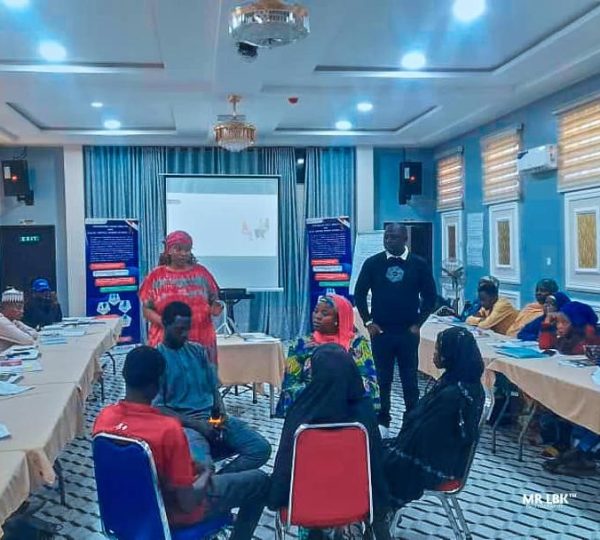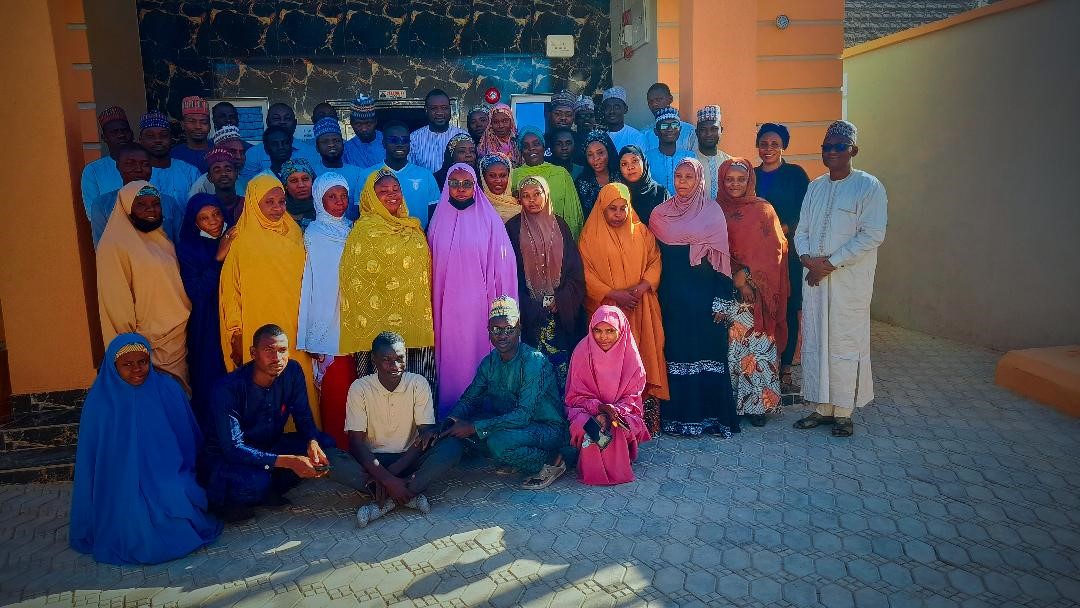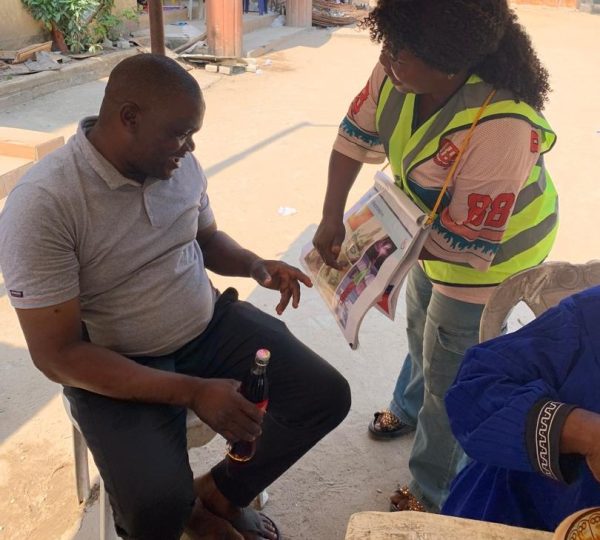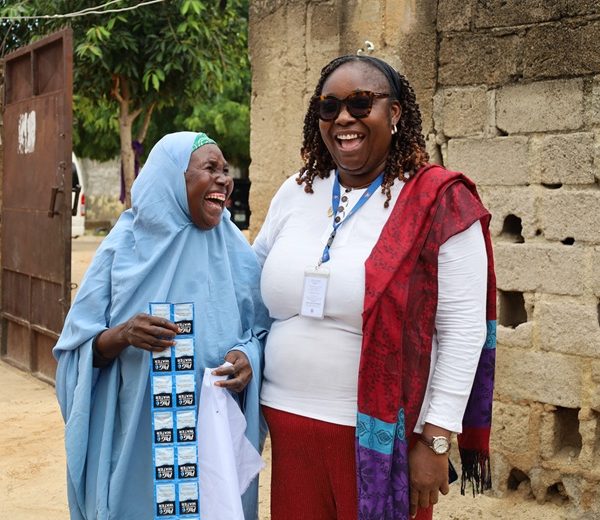Promoting Nutrition and Mental Health: The ICHSSA-3 Project Trains Case Management Workers and Programme Officers to enhance Service Delivery
By Umar Kachalla Gujiba, Caleb E. Odonye, Boniface Biliyock, Abdullahi Abubakar
In a remarkable effort towards promoting nutrition and mental health, the USAID-funded Integrated Child Health and Social Services Award (ICHSSA-3) Project recently undertook a robust capacity-building initiative. The project, focuses on Orphans and Vulnerable Children (OVC) and families in the challenging regions of Borno and Yobe, training 41 Case Workers and Programme Officers to enhance the quality of services related to Nutrition and Psychosocial Support. This initiative not only seeks to address the pressing issues of malnutrition and psychological trauma but also emphasises the importance of self-care among Case Management Workers.
The workshop which held in Damaturu-Yobe State, is a collaborative effort led by facilitators from Society for Family Health (SFH) and Save the Children International (SCI), with support from the Yobe State Primary Health Care Management Board (YSPHCMB). The goal is to impart sustainable knowledge and skills to the participants, ensuring they can effectively contribute to the growth and development of the OVC population.
The OVC beneficiaries of the ICHSSA-3 Project face multiple risk factors with limited protective measures, leading to exposure to malnutrition and psychological trauma. The workshop aimed to bridge the existing knowledge gap and provide updates on Integrated Management of Acute Malnutrition (IMAM) and Mental Health and Psychosocial Support (MHPSS). Practical sessions equipped participants with the tools to enhance nutrition services and offer direct Psychological First Aid (PFA), ensuring vulnerable clients are referred for specialised services when needed.
The workshop introduced innovative approaches such as participatory community models for nutrition screening. Leveraging existing project structures like the Village Savings and Loan Associations (VSLA), Caregivers Forum, Support Groups, and Community Quality Improvement Teams (CQIT), participants were empowered to conduct comprehensive screenings and facilitate referrals for both nutrition and mental health services. This strategic approach aims to ensure wider coverage and reach more beneficiaries with the essential support services they require.
Recognising the importance of community engagement, the training emphasised essential community concepts, including Maternal Infant and Young Child Nutrition (MIYCN), Water Sanitation and Hygiene (WASH), and Mental Health Interventions. The proposed involvement of “Lead-Mothers” or Caregivers and ownership of activities like Mother-led MUAC Screenings, Food Demonstrations, Tom Brown Sessions and other preventive interventions like the Gender Norms and Safe Parenthood Cohorts underscores the commitment to achieving the nutritional and mental health goals of the project.

The Nutrition and Mental Health Training was hailed as a resounding success, bringing together Case Workers with inspiring success stories of resilient caregivers dedicated to making a difference in their families’ lives. The exchange of ideas and innovations during the training resulted in a robust list of action points, signaling a renewed energy in service delivery in Borno and Yobe States. The unwavering support and collaboration from SCI and the YSPHCMB further strengthen the project’s impact.
The ICHSSA-3 Project’s focus on Nutrition and Mental Health Training marks a transformative step in enhancing the lives of OVC and their families. The commitment of the trained participants, coupled with innovative community engagement strategies, paints a promising picture for the sustained impact of the project even beyond its initial lifespan. Through this initiative, the ICHSSA-3 Project not only addresses immediate challenges but also lays the groundwork for lasting improvements in the well-being of vulnerable communities.





